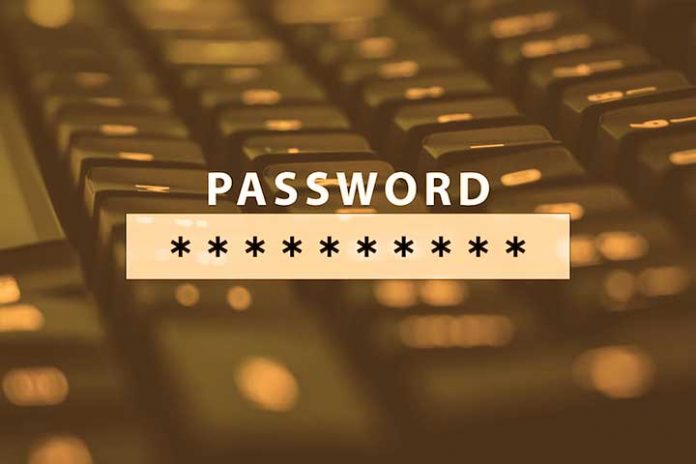Carrying out a good part of our daily activities on the internet exposes us to a higher risk of cyber attacks. In this context, having a good security key is essential to protect our devices, social networks, storage clouds, email accounts, or any other type of access.
How many accounts and passwords that require a login do you have? We guarantee you it’s more than you think. And precisely because this number is so high, many of us use the same access data and some of the most common passwords online across several different accounts.
It’s no secret that using passwords this way is far from secure. If someone gains access to your passwords, this can quickly become dangerous and, in the worst case, even become extremely expensive.
But how do you play it safe when it comes to password creation?
Here are a few pieces of advice on creating safe passwords and proactively preventing attacks.
Tips on maintaining healthy password habits
- It must be at least 12 characters long (20 for administrative accounts). The longer, the better!
- It must contain upper and lower case letters, digits, and special characters (?!%+…).
- Does not contain personal information such as the name of a family member, important dates, pet’s name, etc.
- Does not appear in the dictionary.
- It is not a simple password with a single number or one of the usual special characters ($, !, ?, #) at the beginning or end of the word.
How can you minimize the risk of your passwords getting hacked
Do not write your passwords down
Even if it is challenging to access rarely used data, you should never write down your passwords.
Do not use uniform passwords
Using uniform passwords for many different accounts is problematic. Namely, if the password falls into the wrong hands, attackers can access many applications. You may need to test where the password is still being used automatically. This can be, for example, the mailbox or all information on the PC.
Change Default Passwords
Many software products use empty or generally known passwords in the accounts during installation. Unfortunately, hackers know this. In the event of an attack, they first try whether they forgot to provide these accounts with new passwords. It is therefore advisable to read the manuals to see whether such accounts exist and, if so, to secure them with individual passwords.
Secure screen saver with password
With the standard operating systems, you can lock the keyboard and screen after a specific time. Unlocking takes place only after entering a correct password. Use this feature! Without a password, unauthorized third parties can gain access to your PC if you are temporarily absent.
Change passwords if you find something suspicious
You should change a password if you suspect it has fallen into the wrong hands. For instance, change your credentials immediately if a service provider’s passwords get stolen. A spam or phishing email containing your data can also mean that someone has tapped data from one of your accounts.
If you discover that your device is infected with malware, change your password, but only after checking and cleaning the device. Some malicious programs record access data and transmit them to third parties.
Weak vs. strong passwords
Weak passwords
Your partner’s or dog’s name and date of birth are easy to remember, but unfortunately, they’re not the safest option for a password.
With dictionary queries via special programs, crackers can check millions of standard passwords in different languages within seconds and quickly get their data.
Therefore: Please never use actual words or names for a password. Also, “name1234” or similarly original word and number combinations are not safe.
Strong passwords
Random combinations of lower and upper case letters, numbers, and special characters result in the most secure passwords. As in the heading, letters can be replaced by numbers or special symbols.
Unfortunately, the habit of using a single password for different services is particularly popular – and dangerous. If your password falls into the wrong hands just once, all accounts can get at risk.
How many passwords does a person use in their life, and how secure are they? Also, is a biometric login more secure than the classic version with an email address and password?
Some of the techniques hackers use to obtain your password details
- Millions of usernames and passwords continue to fall into the hands of criminals due to data leaks at major online companies. The passwords and personal information of the owners circulate in long lists and can theoretically be found by anyone on the net.
- Besides such data leaks, poorly chosen passwords are still the most exploited security hole on the internet because hackers can quickly get to your credentials with the help of automatic programs that test thousands of dictionary entries in conjunction with number combinations in a matter of seconds.
- It is also conceivable that strangers could get your login data via phishing, most commonly with manipulated emails.
Why is password security so important?
Using networks and online services has become integral to everyday life, and personal data is secured with passwords everywhere. Password security should, therefore, be a vital part of your overall cybersecurity strategy because, after all, they probably protect most of your internet accounts.
Many people find the creation of several unique passwords tiresome. Especially if you try to ensure that they are as uncrackable as possible and are ideally generated randomly. Choosing passwords is challenging since you often have to choose between convenience and security. This often leads to choosing insecure, obvious passwords, which is why system administrators must strive to close potential security gaps.
Also Read: Learn To Discover The Wi-Fi Password On Your Mobile Phone

